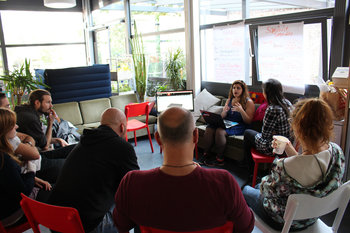|
| |
Workplace issues are problems and risks that decrease employee satisfaction and organizational performance. These are mostly intangible and intractable problems of culture and systems. It is also common for workplace issues to originate with upper management. The following are common examples of workplace issues.Absenteeism | Authoritarianism | Biases | Broken Processes | Broken Systems | Change Fatigue | Communication Failure | Complaining & Defeatism | Compliance to Laws & Regulations | Cronyism | Discrimination | Disorganization & Chaos | Emotional Responses to Criticism | Employee Privacy | Excessive Overtime | Failure of Imagination | Failure to Manage Expectations | Financial Mismanagement | Gossip | Groupthink | Harassment | Health Hazards | Hostility Between Teams / Partners | Hostility Towards Customers | Human Rights Violations | Hygiene Factors | Ideology & Politics at Work | Incompetence | Interpersonal Conflict | Knowledge Waste | Lack of Accountability | Lack of Civility | Lack of Confidence in Management | Lack of Empathy | Lack of Training | Lack of Transparency | Lack of Trust | Lack of Values & Principles | Lateness | Low Engagement | Low Performance | Low Productivity | Malicious Compliance | Mediocrity | Misinformation | Mismanagement | Negative Politics | Negative Selection | Negative Work Culture | Passive Aggressive Behavior | Poor Ethics | Poor Management | Reactance | Red Tape | Resistance to Change | Sabotage | Safety Hazards | Slacking | | Trained Incapacity | Unclear Responsibilities | Unfair Criticism | Unusable Systems | Workplace Bullying | Yes People |
Working Conditions
This is the complete list of articles we have written about working conditions.
If you enjoyed this page, please consider bookmarking Simplicable.
© 2010-2023 Simplicable. All Rights Reserved. Reproduction of materials found on this site, in any form, without explicit permission is prohibited.
View credits & copyrights or citation information for this page.
|






























